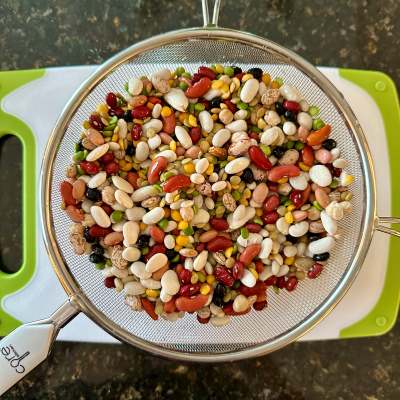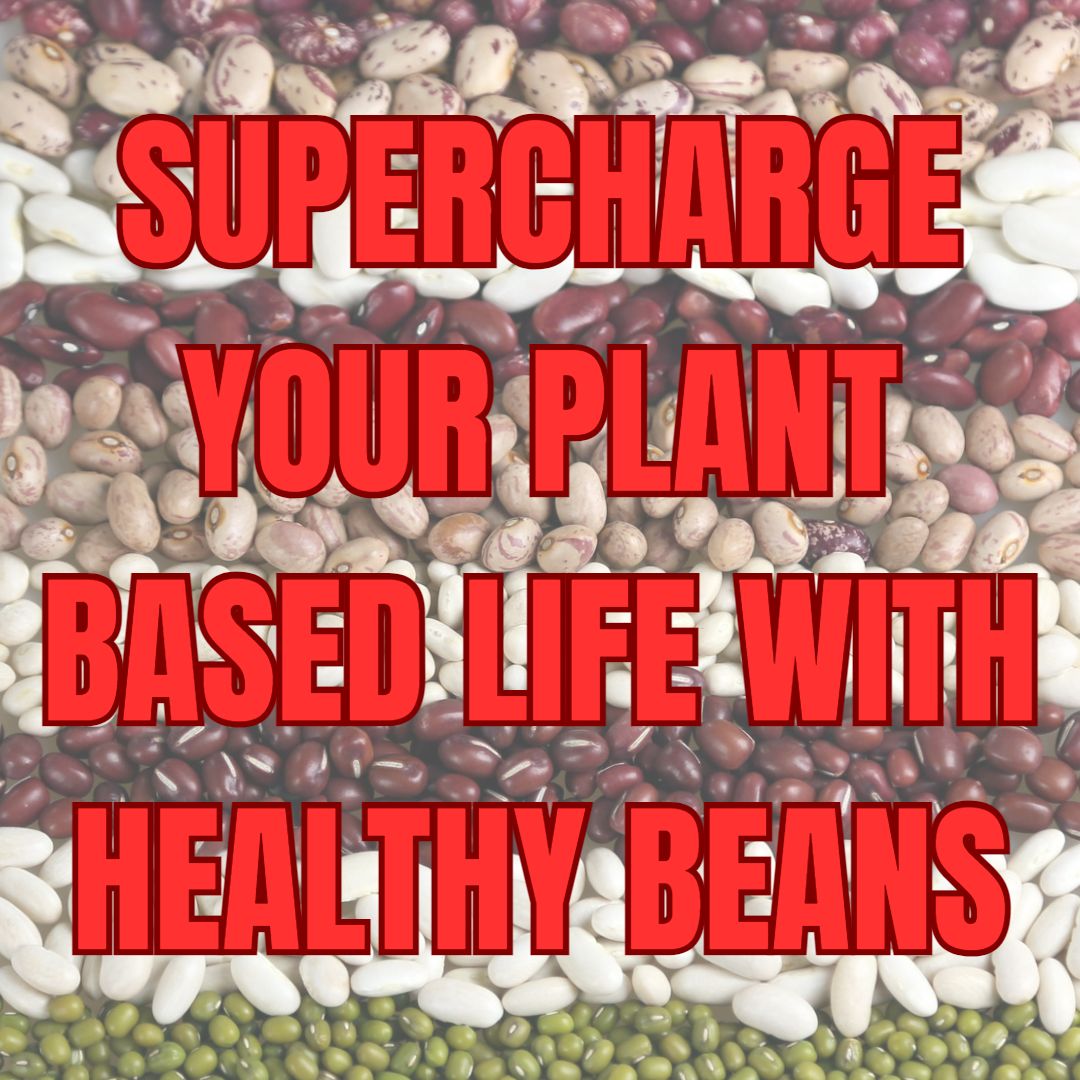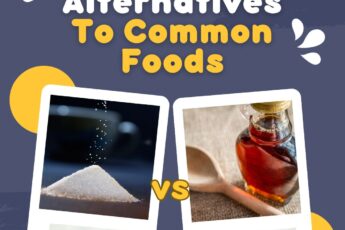Incorporating beans and lentils into a plant-based lifestyle can be a total game-changer. These nutrient-dense legumes are not only delicious and endlessly versatile, but they also deliver a powerful boost of plant-based protein, fiber, and essential minerals. This week’s feature explores the many benefits of beans and lentils – and highlights the best ones to keep on hand as you build a healthy, satisfying, plant-based life.
The Benefits of Beans and Lentils: Why They Deserve a Spot in Your Kitchen
According to UCLA HEALTH, beans and lentils are nutritional powerhouses that offer a wide range of benefits for anyone looking to eat more plant-based foods. Here’s what makes them so valuable:
Plant-Based Protein Power
Beans and lentils pack 12-18 grams of protein per cup, making them an excellent plant-based protein source. While they don’t contain all essential amino acids on their own, pairing them with grains like rice or quinoa creates a complete protein, supporting muscle repair, immune health, and sustained energy throughout the day.
Rich in Fiber for Digestive Health
High in both soluble and insoluble fiber, beans and lentils help keep digestion running smoothly. Soluble fiber feeds the beneficial bacteria in your gut, supporting a healthy microbiome, while insoluble fiber helps maintain regular bowel movements and may aid in weight management by promoting fullness.
Stable Energy and Blood Sugar Regulation
Thanks to their complex carbohydrates and fiber, beans and lentils release energy slowly, helping to keep blood sugar steady. This can reduce energy crashes and keep you feeling full longer, making them a smart choice for sustained energy.
Loaded with Essential Minerals
Beans and lentils are rich in minerals like iron, magnesium, potassium, and folate. Folate supports brain and cell health, iron helps with oxygen transport and energy, magnesium aids muscle function, and potassium plays a key role in maintaining healthy blood pressure.
Practical Cooking Tips for Beans and Lentils
Cooking beans and lentils can feel intimidating, but with a few simple tips, it becomes easy and enjoyable. One of the many benefits of beans and lentils is that they are both economical and easy to prepare.
Dried or Canned: Choose What Fits Your Lifestyle
Dried beans take longer to cook but are budget-friendly and free from additives. Soak them overnight to reduce cooking time and improve digestibility. Lentils usually don’t need soaking and cook quickly, perfect for weeknight meals. Canned beans offer convenience and can be rinsed to reduce sodium. While both canned and dried versions offer similar protein and fiber content, dried beans may retain slightly more nutrients and have no added salt or preservatives.
Ease Digestion Naturally
If beans cause bloating or gas, start with smaller portions to allow your gut to adjust. Rinsing canned beans or soaking dried beans helps remove some of the compounds that cause digestive discomfort. Cooking with spices like ginger, cumin, or turmeric can also aid digestion.
Season for Flavor
Beans absorb flavors well—try simmering them with garlic, onion, herbs, and spices for a delicious base. Once cooked, add fresh herbs or a squeeze of lemon to brighten dishes.
Use a Pressure Cooker for Speed
If you’re short on time, a pressure cooker cuts down cooking from hours to minutes. It’s a great tool for batch cooking and meal prep.
Busting Common Myths About Beans and Lentils
Beans and lentils have been misunderstood in several ways. Let’s clear up some of the biggest myths:
Myth: Beans Are Full of Harmful Lectins
Lectins are natural plant compounds that protect beans from pests. However, these are mostly neutralized by soaking and cooking beans thoroughly. Eating raw or undercooked beans can be harmful, but properly prepared beans and lentils are safe and nutritious. In the end, this myth has some kernels of truth, but ultimately, who eats uncooked beans?
Myth: Beans Cause Weight Gain
Beans are high in fiber and protein, which promote fullness and may help with weight management. They’re nutrient-dense and low in fat, making them a great addition to a balanced diet.
Myth: Beans Don’t Provide Complete Protein
While beans alone aren’t a “complete protein,” combining them with grains throughout the day provides all the essential amino acids you need for a healthy, plant-based diet. Beans have nourished cultures worldwide for centuries, and the additional food you consume throughout the day will balance your needs.
Myth: Beans Are Hard to Digest
Some people experience gas or bloating, but this often improves over time with gradual introduction. Rinsing, soaking, and cooking beans well can reduce digestive discomfort.
A Sustainable Choice for Your Plate and the Planet

Beyond personal nutrition, beans and lentils support a more sustainable food system. Compared to animal proteins, they require far less water, land, and energy to produce, while emitting fewer greenhouse gases. Adding more beans and lentils to your diet can lower your environmental footprint and contribute to healthier, planet-friendly eating habits. They’re a win-win for both your health and the Earth.
The Most Common Healthy Beans & Lentils
For those trying to segue into a plant-based lifestyle, stocking up on a variety of beans and lentils is key. Here are the basic and most adaptable beans we suggest as part of our section on PLANT-BASED STAPLES:
- Kidney/Cannellini Beans: Kidney beans are known for their vibrant red color and creamy texture. Cannellini beans (white kidney beans) are similarly creamy and used in many Italian dishes. Both types are versatile and perfect for chili, salads, soups, and stews. They’re excellent sources of plant protein, fiber, iron, and folate.
- Black Beans: Black beans have a rich, earthy flavor and soft texture. They offer antioxidants that help combat free radicals in the body, plus fiber, folate, and magnesium. Black beans are staples in Hispanic dishes and pair beautifully with sweet potatoes.
- Chickpeas: Also called garbanzo beans, chickpeas are slightly nutty and a staple in Mediterranean and Middle Eastern cuisines. They provide protein, fiber, iron, and vitamin B-6.
- Lentils: Lentils come in green, brown, and red varieties and are packed with nutrition. Although not technically beans, they belong to the legume family and are often grouped with beans for their similar benefits.
- Green Lentils: Hold their shape well and have a mildly nutty flavor, great for salads and side dishes.
- Brown Lentils: The most common type, with a mild earthy taste, perfect for soups, stews, and curries.
- Red Lentils: Cook quickly and soften nicely, used in Indian dals and lentil soups, or as a protein-rich sauce base.
General Preparation & Cooking
Preparing beans and lentils is straightforward, whether using dried or canned options.
Dried: Sort, rinse, and soak dried beans overnight to reduce cooking time. Drain, rinse, and cook in fresh water or broth, simmering until tender—usually 1–2 hours for beans and 15–30 minutes for lentils. A pressure cooker can speed this up.
Canned: Simply drain and rinse canned beans for a quick protein boost in any recipe.
How to Get More Beans and Lentils in Your Diet
Adding more beans and lentils to your meals doesn’t have to be complicated. Here are some easy, tasty ways to make these nutrient-packed legumes a regular part of your plant-based routine:
Salads: Boost your salads with a generous handful of beans for extra protein and fiber that keep you full and satisfied. Black beans, chickpeas, and kidney beans add a lovely texture and subtle flavor that pairs well with greens, veggies, and zesty dressings.
Soups and Stews: Beans and lentils bring heartiness and depth to soups and stews. Lentils cook quickly and thicken broths beautifully, while black beans and cannellini beans add creaminess and body. Experiment with recipes like a comforting HEARTY LENTIL SOUP or a rich SLOW COOKER 15-BEAN SOUP to savor these benefits in every spoonful.
Snacks: Swap out typical snacks for crunchy roasted chickpeas. Simply toss drained chickpeas with olive oil and your favorite spices—think smoked paprika, cumin, or garlic powder—then bake until crispy. They make a satisfying, protein-packed snack perfect for munching any time.
Main Dishes: Make beans and lentils the star of your meals by incorporating them into delicious main dishes. Try black bean burgers, lentil pasta sauces, hearty bean burritos, or a flavorful chickpea tikka masala like VEGGIE CHICKPEA TIKKA MASALA. These dishes are filling, easy to prepare, and packed with plant-powered nutrition.
Breakfast: Beans aren’t just for lunch and dinner—they’re great at breakfast too! Add black beans to a breakfast burrito with scrambled tofu and veggies, or enjoy a savory lentil hash. Starting your day with beans helps provide lasting energy and keeps cravings at bay.
Side Dishes: Don’t forget beans make fantastic side dishes. Whether it’s classic baked beans, easy REFRIED BEANS, or a fresh bean salad with herbs and lemon, these simple sides round out meals with extra flavor and nutrition.
By experimenting with these ideas, you can effortlessly enjoy the benefits of beans and lentils throughout your day, adding variety, satisfaction, and that wholesome plant-based power.







Leave a Comment